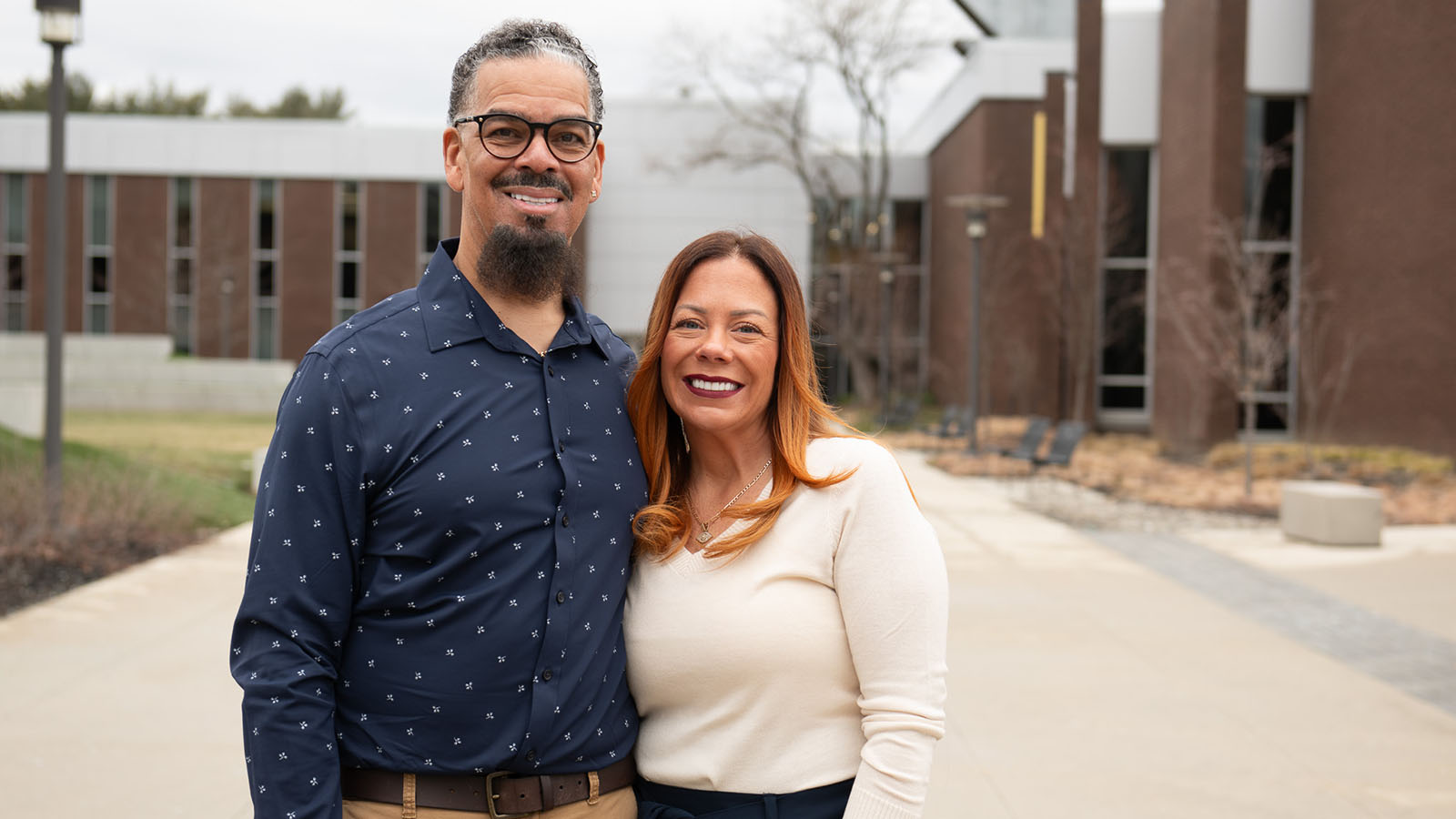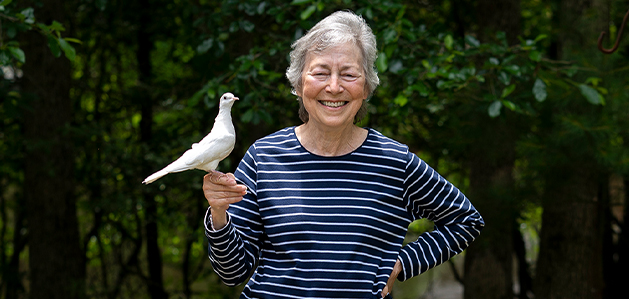The Cardio Oncology Team Protects Your Heart During Cancer Treatment
Cardio-oncology combines the expertise of cardiologists and oncologists to help protect the hearts of people undergoing cancer treatment. Learn more.
By Geoffrey Zarrella, DO, FACC, and Jerome Horwitz, DO—Virtua Cardiology
Cancer is the second-leading cause of death in the United States, right behind heart disease. While new therapies are helping more people survive cancer, they also can cause heart problems.
Cardio-oncology combines the expertise of cardiologists and oncologists to help protect the hearts of people undergoing cancer treatment.
Cancer treatment can be a double-edged sword
Chemotherapy is a drug treatment that uses powerful chemicals to kill fast-growing cancer cells in the body. However, these same chemicals—such as anthracyclines, mitoxantrone, paclitaxel, and cyclophosphamide—also cause cardiac toxicity, leading to damage of the heart muscle and valves.
These drugs can cause an enlarged heart or swelling of the heart or the sac around it, which can lead to heart rhythm problems (arrhythmias) and heart failure. They also can cause blood vessel damage, reducing blood flow to the heart and raising the risk of a heart attack.
In addition, chemotherapy drugs can interfere with blood thinners people take to prevent clots and lower their heart attack and stroke risk.
It’s important to note, however, that newer, targeted therapies like Herceptin are thought to cause only temporary heart damage.
Here to protect your heart
Working with oncologists, we identify people who are about to have chemotherapy or who are undergoing treatment. We then evaluate them for heart problems, such as congestive heart failure or left ventricular dysfunction.
To evaluate patients, we use a screening test called three-dimensional echocardiography with global longitudinal strain.
Strain describes the elastic properties of the heart muscle. If the test shows reduced strain, this signals earlier cardiac dysfunction that can eventually lead to heart failure and chemotherapy-related cardiomyopathy (a condition that makes it harder for the heart to deliver blood to the body).
By looking at strain, we can see who’s at risk going into chemotherapy. If you’re already undergoing treatment, we can determine if you're already experiencing damage.
To prevent damage and protect your heart, you may be prescribed medication such as:
- Beta blockers
- ACE inhibitors
- Angiotensin receptor blockers
Keep your heart in mind during cancer treatment
If you have cancer, talk with your doctor about the benefits and risks of potential treatments. Together, you can discuss how they might affect your heart health so you can determine your best options.
To make an appointment with a Virtua cardiologist, call 888-847-8823.
There's So Much More to Explore
Discover expert insights, inspiring stories, health tips, and more by exploring the content below!

HeartTalk Magazine

10 Reasons To Schedule Your Colonoscopy Today
Is an At-Home Colon Cancer Test a Good Alternative to a Colonoscopy?
Inside Look at Blood Vessels Aids PAD Treatment
Denise Davis: Pay Attention to Your Heart Health

Sweet Music: Trust, Teamwork Save Justin from Heart Attack

Complex Heart Surgery Nets James a Lifelong Friend

8 Key Steps to Better Blood Pressure Control

The HPV Vaccine: A Powerful Shield Against Cervical Cancer

How Does Breast Density Affect Your Mammogram?
Signs You Should Get Treated For Vein Problems

One New Heart Valve Saves Two Lives in the Tritten Family
What You Need to Know About Heart Failure

6 Numbers Key to Keeping Your Heart Healthy

Breast Cancer Diagnosis Inspires Catherine to Help Others

Five Mindfulness Tips That Can Help Heal Your Heart

Watchman Heart Device: a Technological Breakthrough for Blood Clot Prevention

Albert's Emergency Cardiac Surgery Is a 'Story of a Lifetime'

Love Your Heart: Essential Care Tips for Every Stage of Life

How Do I Measure My Blood Pressure at Home?

How Do I Improve My Cholesterol Levels?

3 Ways to Reduce Your Stroke Risk

How the Unique Stages of a Womans Heart Affect Her Health

Can Your Gut Health Affect Your Heart?
Advanced Heart Failure Therapies Get Bernadine Back to Full Speed

Put Your Mammogram Appointment on the Top of Your To-Do List
Firefighter's Successful Lung Cancer Care at Virtua

A Breast Self-Exam Saved Kristen's Life

Protect Your Child From HPV and Related Cancers

What to Know About Cervical Cancer Screenings

Keeping the Beat: Advanced Heart Surgery for Aortic Aneurysm

Heart-Healthy Summer Recipe: Hummus and Veggies

4 Delicious Heart-Healthy Recipes Perfect for Summer

Heart Healthy Summer Recipe: Dessert Parfait

Heart-Healthy Summer Recipe: Pear and Walnut Salad

Heart-Healthy Summer Recipe: Terrific Turkey Burgers
6 Tips for an Easier Colonoscopy Prep

Rectal Cancer Surgery Gets Eileen Back to her Magical Life | Virtua Health
Atrial Fibrillation and Stroke: What's the Connection?
Robotic Surgery Helps Shelly Haney Return to Her Happy Place

New Technology Precisely Marks Suspicious Breast Lumps Before Biopsy to Ease Patient Anxiety
3 Changes You Can Make Today to Lower Your Cancer Risk
Heart Tests Your Doctor May Order
Managing Pregnancy for Mothers With Heart Conditions

Heart Healthy Recipe: Basil Pesto Pasta With Seared Vegetables

Heart Healthy Recipe Chocolate Avocado Chia Pudding
Keep Your Heart Rhythm in Check With Your Smartwatch
Mind Your Meds for Blood Pressure Risks
Master 3 Mens Health Issues
Personalized Breast Cancer Treatment Puts Choice In Womens Hands
Magic Pill for Heart Health? Cut 300 Calories a Day
3 Smart Ways to Boost Your Heart Health
3 Best Exercises For Heart Health

Get Your Heart Pumping With These 25 Workout Songs
Your Chest Pain: Heartburn, Heart Attack, or Something Else?
Radiosurgery Delivers Targeted Treatment for Brain Tumors
3 Heart Healthy Recipes to Win Valentines Day
How Work and Home Stress Can Affect You
Why Improving Your Health Is Going To The Dogs And Cats
Why Younger Women Need Start NOW To Safeguard Their Hearts From Heart Attacks
Seeing a Social Worker at the Hospital
Start Reducing Your Cancer Risk Today
Can You Die of a Broken Heart?
Call Your OBGYN if You're Bleeding After Menopause
Get to the Bottom of Blood Pressure Numbers
Know Your Endometrial Cancer Treatment Options
Mitral Valve Surgery Opens Doors for Improved Quality of Life
Robot Helps Spot Lung Cancer Early
6 Healthy Habits to Start in Your 20s for Better Lifelong Health
Do You Have a Fatty Heart?
Get Pumped! Assist Devices Can Improve Heart Failure Symptoms
Restoring Appearance and Spirit After Breast Cancer
A Cardiologists Advice on Heart-saving Emergency Cardiac Care
Virtua Doctor’s Experience Is a Warning for All About COVID-19 and Strokes
You May Feel Fine, but Gregory Says "Don't Skip Your Medical Care"
In Sickness and in Health: Couples Often Share Heart Disease Risk
"Reduce Your Heart Disease Risk With a Plant-based Diet"
4 Essential Cancer Screenings
How to Overcome Colonoscopy Fears
Hybrid Robotic Heart Surgery and Valve Replacement Restores Quality of Life
What You Need To Know About Cancer And COVID 19 Risks
Can Marijuana Hurt Your Heart Health?
Prostate Cancer Screening: What You Need to Know
6 Tips for Restoring Your Heart Rhythm
Eat Smart for Your Heart
Military Veteran Pam Carpino Offers Hope to Women With Triple Negative Breast Cancer
Cardiac Rehab: Strengthening Your Heart After Leaving the Hospital
Reclaim Your Strength and Spirit After Breast Cancer
Your Heart Needs A Good Nights Sleep
Are You at Risk for AAA—the Silent Killer?
The Cardio Oncology Team Protects Your Heart During Cancer Treatment
Get Relief From Painful Varicose Veins This Summer
Exercise Your Way to a Stronger Heart
Fish Oil: A Good Catch or a Scam?
My Heart Seems to Skip a Beat - Should I Be Worried?
Menu Planning? Try These 5 Heart-smart Substitutions

5 Health Risks Tied to Weight

Heart-Healthy Recipe: Maple Orange Salmon With Mango Salsa
Do Not Wait to Get Help When a Stroke or Heart Attack Strikes
4 Reasons Why Heart Patients Should Follow COVID 19 Safety Guidelines

